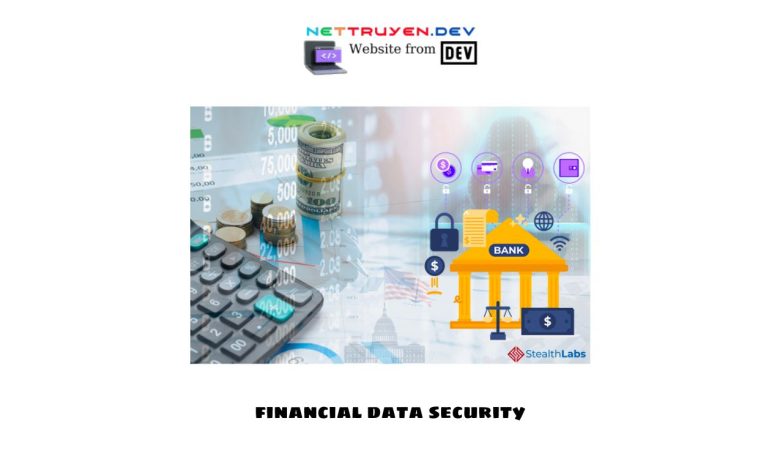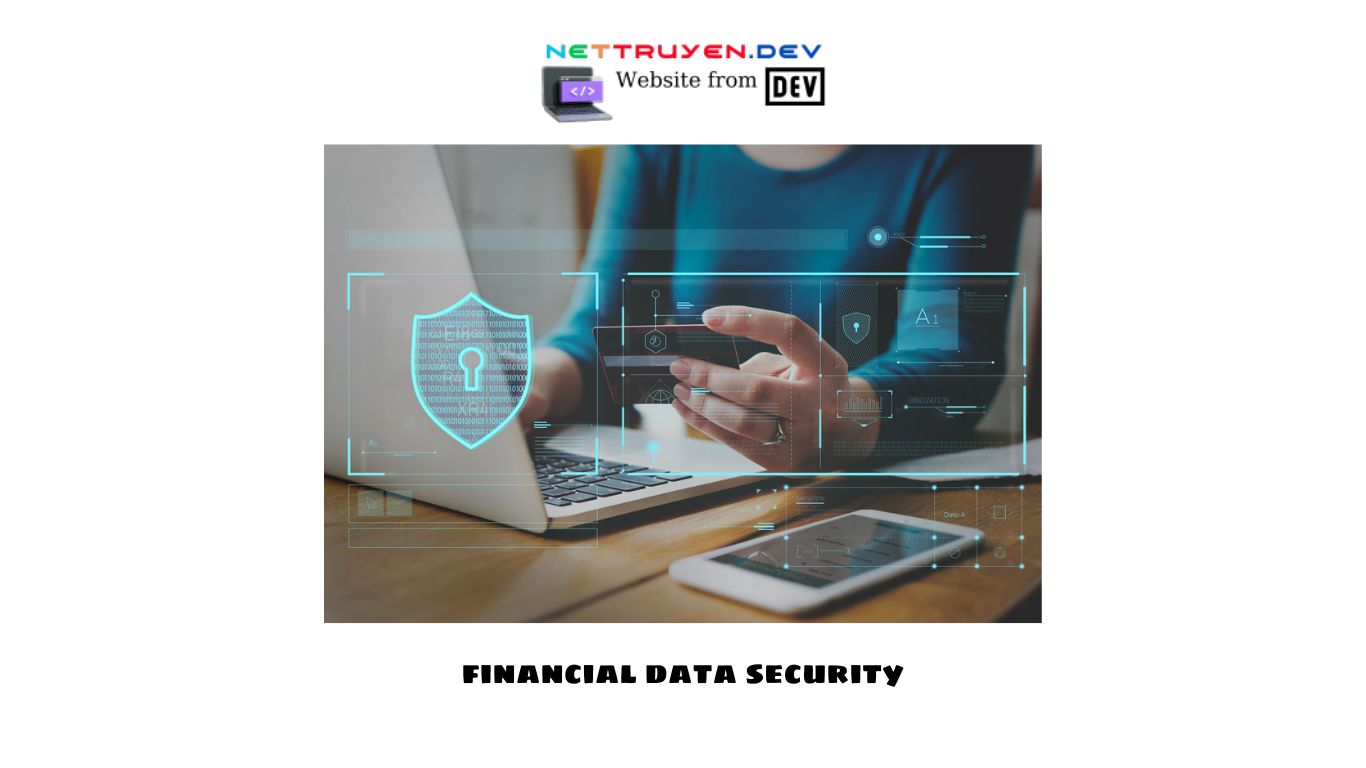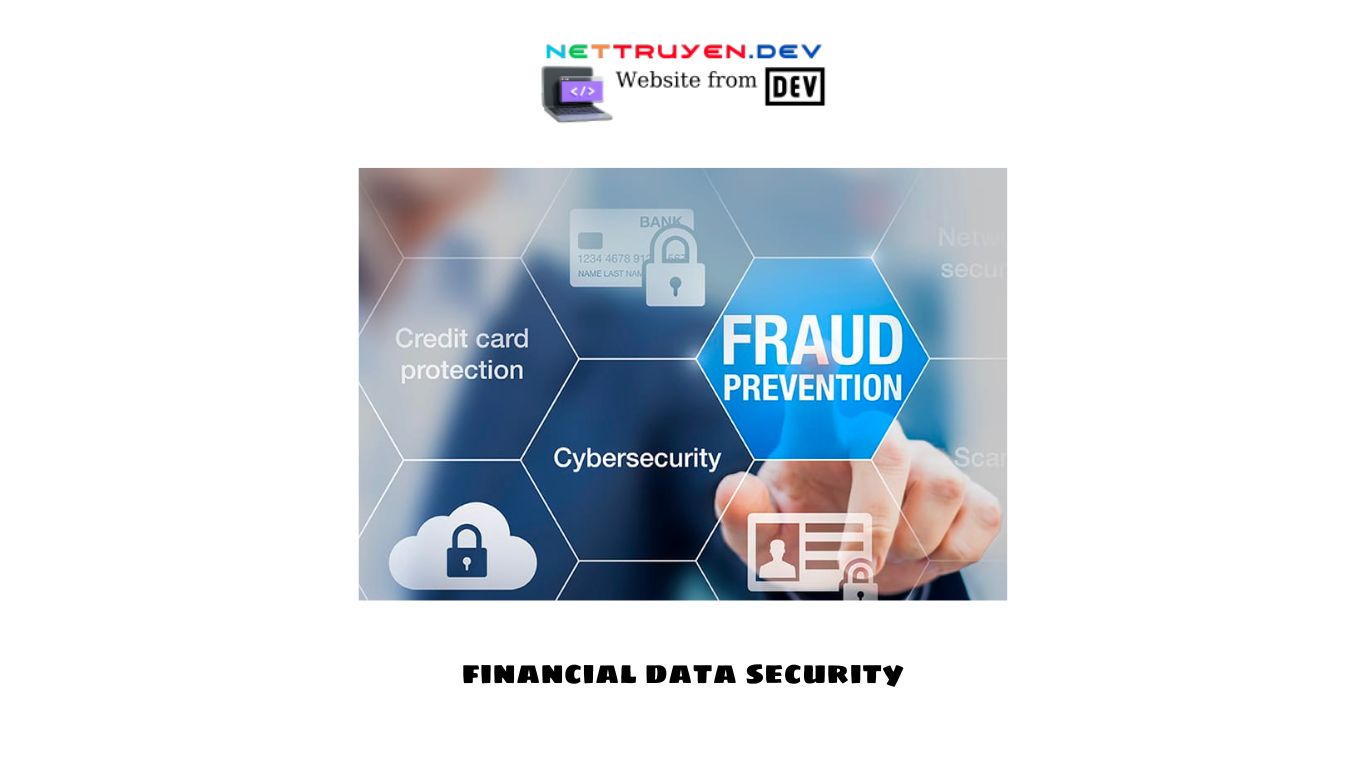The Importance of Financial Data Security: Safeguarding Your Information

In today’s digital world, securing your personal and financial information online is increasingly important. With instances of data breaches on the rise, protecting sensitive data should be a top priority for both individuals and companies handling monetary transactions and records. This article by Nettruyen.dev discusses why Financial Data security safeguarding information is crucial from both an individual and societal perspective.
Why is Financial Information Attractive to Criminals?

Individuals need to be aware that their financial information – including bank account details, credit and debit card numbers, Social Security numbers, and other identifiers – is highly coveted on the black market. Cybercriminals seek this type of information because it can easily be used for fraudulent purposes like identity theft, credit card misuse, wire fraud, and more. Once personal details are stolen, they are very difficult to undo the damage of. Criminals can potentially open new accounts, borrow money, file fake tax returns, get medical services on someone else’s insurance, and destroy credit scores – all using another person’s compromised information. This underscores why individuals must take precautions to protect their sensitive financial data.
Securing Information Benefits Society
Beyond protecting yourself, safeguarding financial information is also important from a macro level. Data breaches that result in identity theft and fraud negatively impact not only the individuals affected but also companies, banks, credit bureaus that must dedicate resources to resolving issues.
Taxpayer money may even fund programs to assist identity theft victims or crack down on cybercrime when information security fails. Widespread theft or misuse of data also erodes public trust in financial institutions and digital transactions over time. When information security is upheld, it fosters confidence for individuals and businesses to participate freely in the digital economy without undue fears about cyber risks.
Common Threats to Financial Information Security

Unfortunately, there are many ways in which personal and financial information can potentially be accessed or stolen:
- Phishing scams that fool victims into revealing sensitive details through fake websites, emails, or text messages
- Malware infections on devices that enable keylogging to capture passwords and account numbers entered
- Loss or theft of physical documents containing financial information left unattended
- Insider theft from companies by employees with access to customer/client records
- Data breaches at organizations where attackers gain unauthorized access to databases of information.
- Use of public WiFi networks that expose transmissions of login credentials and bank sessions
- Shoulder surfing where bystanders watch details entered on ATMs, mobile devices in public.
It’s clear individuals must take proactive measures given the various threats to safeguarding their important information.
Individual Financial Information Security Best Practices
To better protect sensitive financial information, here are some prudent precautions individuals should adopt:
- Use strong and unique passwords for all online financial accounts, and change periodically.
- Enable multi-factor authentication where available for added login verification layers.
- Be wary of unsolicited requests for personal or financial information via phone, email, texts.
- Use antivirus and ensure devices/systems are updated with the latest security patches.
- Shred documents containing financial information before discarding.
- Carefully review account statements and reports for unauthorized activity.
- Consider a credit freeze with the major bureaus if a risk of potential theft exists.
- transmit information only on trusted, secure WiFi networks you control.
- Limit what’s shared on social media about personal finances and accounts.
- Sign up for transaction alerts from banks for notifications of activity.
- Store digitally accessed documents and records using encrypted password managers.
With diligence taken to safeguard sensitive information using multiple layers of security practices, individuals can significantly reduce their risk of becoming victims of financial crime or fraud. Data protection must continue to be a priority both online and offline.
Importance of Business Information Security

Financial institutions and companies have an even higher obligation to protect the information of their customers and clients. At a minimum, businesses should implement robust security frameworks including firewalls, encryption of stored data, access controls, regular audits/testing, employee training, and incident response plans. They must also comply with privacy regulations regarding use and safekeeping of individuals’ information. Protecting customer/client financial records through strong security protocols is not just recommended but also a legal requirement in many jurisdictions. When businesses fail to uphold solid information security, they risk costly litigation, steep fines, loss of trust – and even going out of business for major incidents. Safeguarding information is critical for maintaining customer loyalty, operational resilience, and complying with baseline security and privacy standards.
Conclusion
In summary, financial information has become one of the most targeted types of personal data online and offline due to the havoc identity thieves can wreak with compromised details. Both individuals and organizations must recognize the importance of information security best practices to not only reduce cyber risks but also protect public trust and the integrity of financial systems. With layered protections in place, diligent oversight of sensitive records, and a security-conscious culture, keeping financial information safe is achievable.
Conclusion: So above is the The Importance of Financial Data Security: Safeguarding Your Information article. Hopefully with this article you can help you in life, always follow and read our good articles on the website: nettruyen.dev




